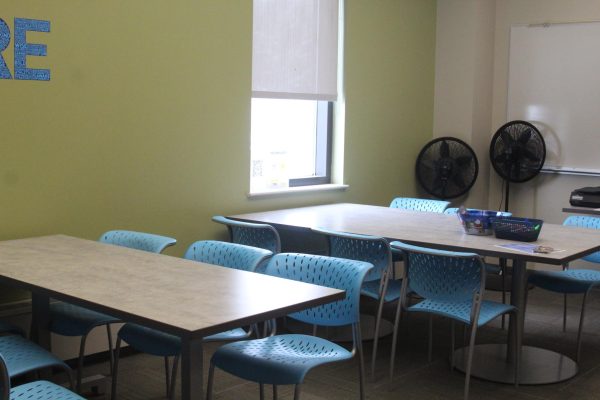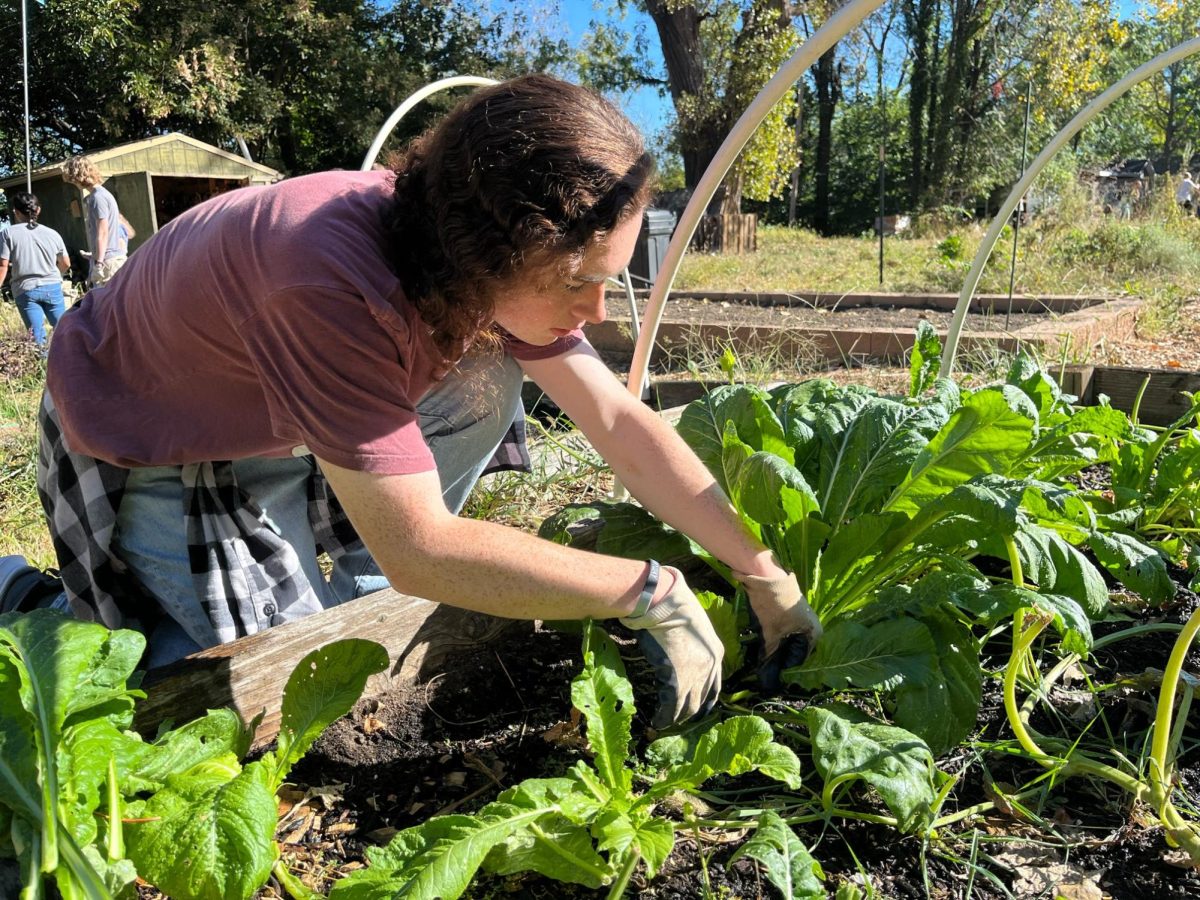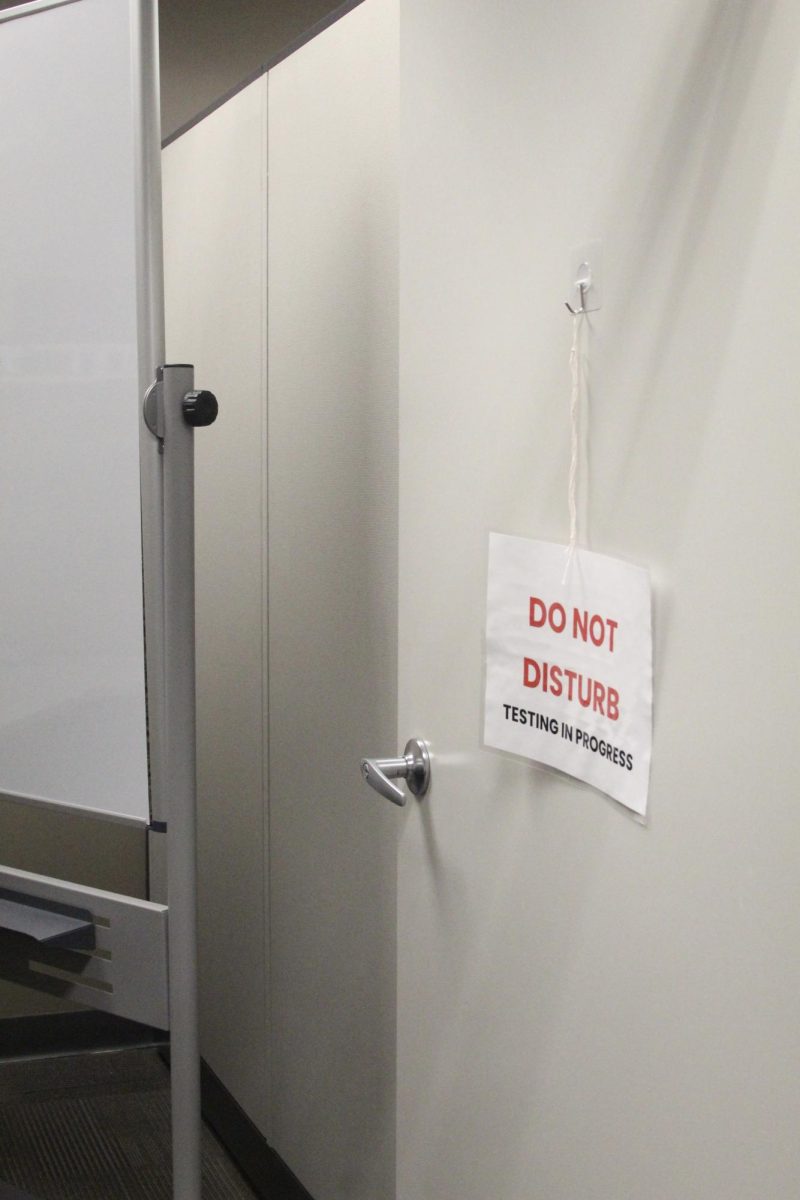A new testing accommodations office opened up this academic year, available for students who have accommodations to use for tests. At this time, quiz accommodations are still not available for students, and there is no specific date for when quiz accommodations might become available.
Dimitrios Jason Stalides has been the director of TRIO Student Support Services since 2021, and this year he also began as the director of the Office of Disability Services.
Stalides said that to begin the process for accommodations, students need to register with the office of disability services, and then meet with him to discuss what they might need. After the accommodations have been approved, students should discuss with their professor when they need accommodations per test.
According to Stalides, students need to notify their professors if they want to use their accommodations within five business days for each test. Then, the professor will fill out a form to request accommodations for their students, and the office will schedule and administer the test for the student.
This is a change from previous years when the responsibility was on the professor, and Stalides said this will help lighten the load on the professor’s end.
“It’s a very big burden for [the professors]. I think it’s well overdue that we’ve had something more formal for them,” Stalides said.
Stalides also hopes the testing office will lead to more students with academic accommodations using their extra time, or asking for a quiet place to take a test.
“It can be intimidating to go to someone and say, ‘Hey, I want to use help,’ and that’s always a hard thing to do in itself. What my hope is is if there’s a more neutral go between, it’ll make the process easier, and something that will help [the students] to feel more comfortable to use when they need it.”
However, some students with accommodations believe it is a simpler process to go through the professor, instead of utilizing the testing office.
Junior Neida Marquez said she has taken tests in the office using her accommodation, but has also taken tests after setting it up herself with a professor.
“I don’t think it really makes a big difference. The only difference I would say would be sometimes professors will just put you in whatever room they can find. So it might not be as quiet as the Office of Disabilities because they specifically have a designated room,” Marquez said.
Marquez said the testing office may offer a quieter space, but taking the test with a professor instead presents less hurdles.
“Finding the time is a little easier because I have a really packed schedule. I have back to back classes and then I have work, so working with my professor who just found the time that works [is easier]. The office, I don’t know what time they would have available,” Marquez said.
One department in particular has been very helpful with testing accommodations, according to Marquez.
“The psychology department also has been really easy, because they basically do it like the way that the Office of Disabilities does. I got an email from the Secretary of the psych Department. It’s just like ‘you can either take it at this time or this time, depending on your schedule,’ and then you just go in and [the secretary] gives you the exam,” Marquez said.
Junior Ella DePasquale said she has chosen not to use the testing office because, like Marquez, she believes taking the test with the professor may be easier.
“I have pretty good relationships with my teachers. I want them to be in the loop of what’s going on with me,” DePasquale said. “I think it just was easier for [my professor] to be there, especially for clarification on the questions. I had asked her like two times, so if I was in the testing center, I would have just had to use my best judgment.”

Marquez said that the accommodations have helped her focus better during tests, but improvements could be made to the office, to encourage more people who need accommodations.
One barrier for students who need accommodations may be receiving a diagnosis in the first place. Marquez reached out to Disability Services to find a resource to properly diagnose her, and the office told her they had no way of connecting her with a professional or clinic.
“I wish there was more access to the testing process. I didn’t have accommodations my freshman year. I didn’t get diagnosed with ADHD till I was a sophomore,” Marquez said. “I wish someone would have said ‘Here, you can go to this person,’ even if they were like ‘Call this clinic,’ because it took me a year to get someone to hear me.”
DePasquale also feels that some barriers to students may be access to therapy to receive a diagnosis. And, without a diagnosis, students who may need accommodations to succeed in school are left without that help.
“Some people here definitely don’t have [access to a therapist] or they have mental health problems and don’t know it and then they’re going undiagnosed,” DePasquale said. “And so then it’s like, how are they even going to get an accommodation if they don’t have that proof? I feel like if there was some way that the campus could maybe have someone in the disabilities center that could help students that need a diagnosis, I think that would be really cool.”
The office is still growing and working on improving, but Stalides said he hopes it can be a helpful resource for students to use in the future.
“An accommodation does not in any way mean that they have any type of deficit or [are] less than, but rather, these are your strengths, and this is how you’re going to succeed. Just as anyone who succeeds will examine their strengths,” Stalides said “That’s what I would like them to see the office as: a place where we really help them to find those strengths.”
For testing accommodations specifically, Stalides also said the office is available to help them succeed academically.
“It’s meant to be a tool that they can use or not use as they see fit that can really help them to feel more relaxed while they’re taking their tests in a situation that’s stressful. And we’re here to help them if they have any questions or are uncertain how to use it,” Stalides said. “I know it’s new and people may not know all the ins and outs right now, but I hope down the road it’ll just become very rote and common.”










































































































